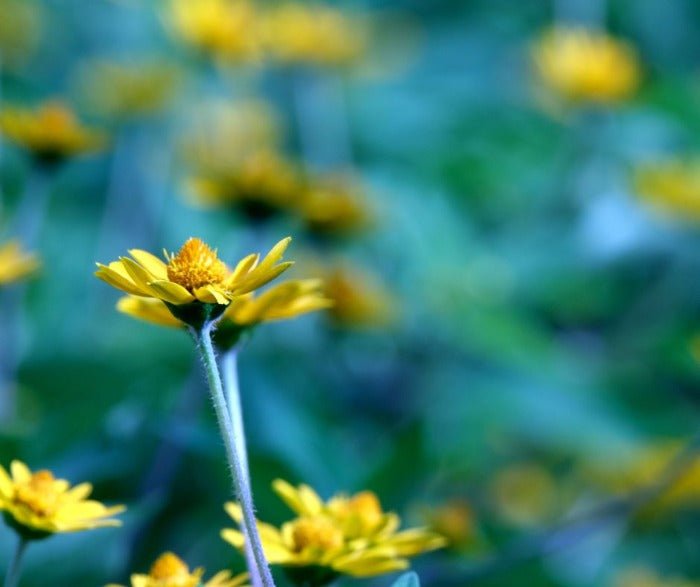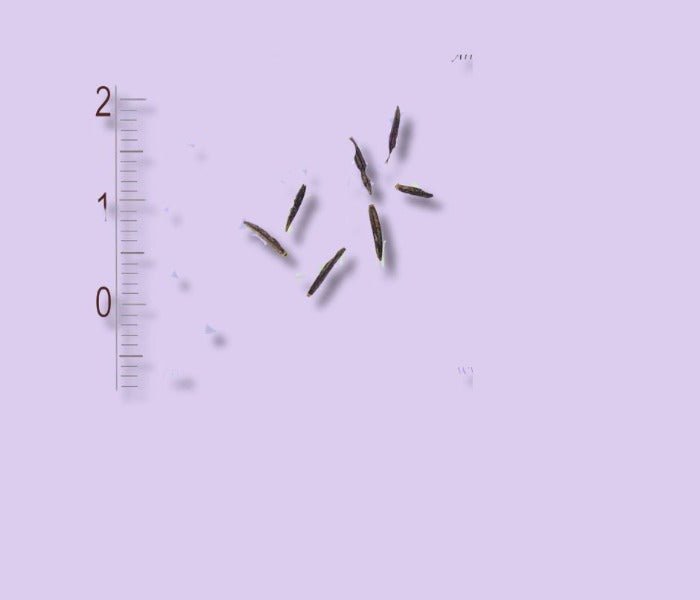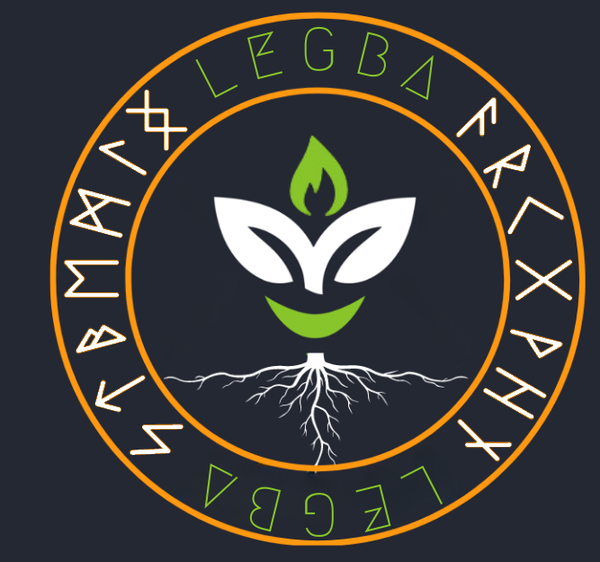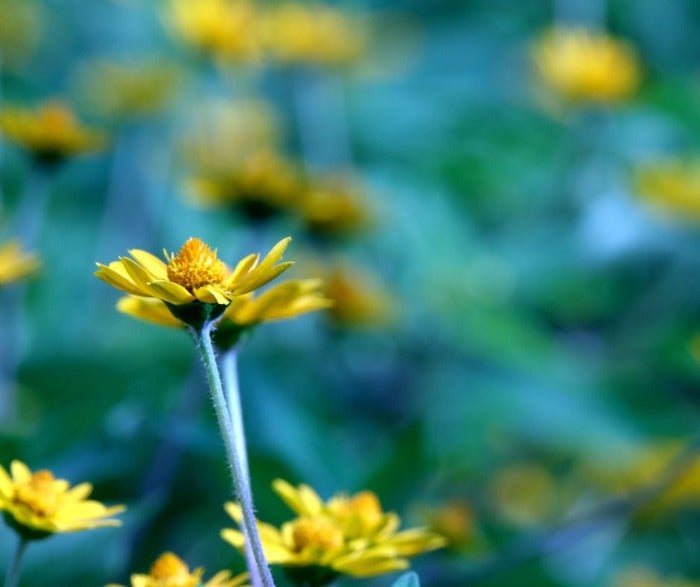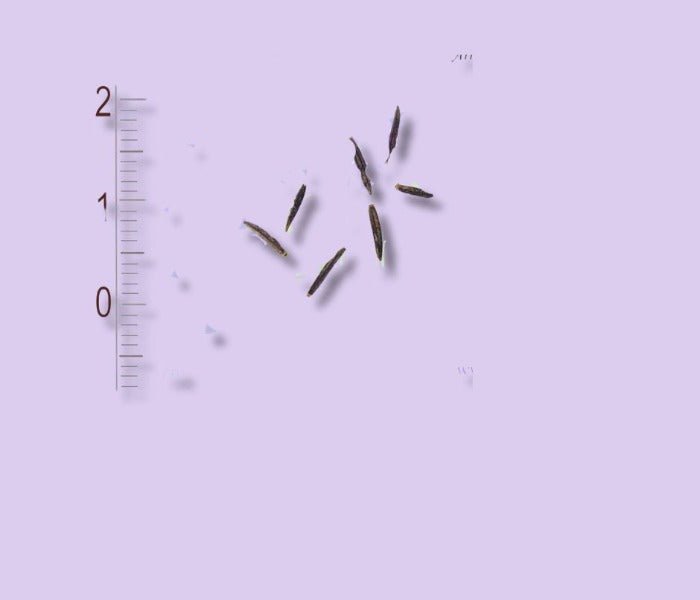Arnica Montana
Arnica Montana: A Mountain Treasure for Your Medicinal Garden
Discover Arnica Montana, the pearl of the mountains, renowned for its
powerful medicinal properties. Its bright yellow flowers are not
only a feast for the eyes but also a must for the
natural pharmacopoeia, ideal for enriching your therapeutic garden.
LEGBA
Arnica Montana Seeds
Arnica Montana Seeds
Couldn't load pickup availability
Shipping info (size, period...)
Shipping info (size, period...)
The seeds are available all year round, packaged in waterproof doypack bags.
Detailed Description and Benefits
Detailed Description and Benefits
Botany: Arnica Montana is a hardy perennial plant, valued for its resilience and natural beauty. Its leaves, a deep, velvety green, spread out in a basal rosette, while its erect stems can reach up to 60 cm in height, bearing bright yellow flowers resembling small daisies. Flowering takes place between June and August, during which the flowers unfurl in solitary flower heads at the top of the stems, attracting pollinators and admirers. The fruits, achenes equipped with a feathery tuft, ensure the dispersal of the seeds by the wind from the end of summer.
The benefits of Arnica Montana for humans are multiple and well documented, particularly for its anti-inflammatory and analgesic properties. It is widely used in ointments and gels to relieve bruises, muscle and joint pain. In homeopathy, Arnica helps treat shock, trauma and muscle fatigue. For animals, especially horses, Arnica is useful in topical preparations to soothe sore muscles and speed recovery after strenuous exercise. However, its use must be guided by veterinary knowledge to avoid any risks linked to its potential toxicity when ingested.
How to cultivate it? Growing guide
How to cultivate it? Growing guide
Sowing Period
Arnica Montana is ideally sown in spring, between March and April, when the risk of frost has passed. Sowing in autumn can also be considered in regions with mild winters.
Flowering Period
Arnica blooms from June to August, offering golden yellow flowers that captivate the eye and attract pollinators.
Temperature and Hardiness
Arnica Montana is a hardy plant, capable of withstanding temperatures down to -20°C. It is well adapted to mountain climates and tolerates climatic variations.
Exposure
This plant prefers a sunny exposure to partial shade. A location that receives direct sunlight for a few hours a day is ideal for abundant flowering.
Watering
Arnica requires well-drained soil and does not like excess water. Water sparingly, allowing the soil to dry out between waterings to prevent root rot.
Pests and Diseases
Arnica is relatively resistant to pests and diseases. However, it can sometimes be affected by slugs and aphids. Use biological control methods to control them if necessary.
Germination Time
Arnica seeds usually germinate within 2 to 4 weeks after sowing. Soil kept moist and a stable temperature promotes successful germination.
To ensure the best growth, enrich the soil with well-decomposed compost before sowing and ensure that the chosen location is not subject to water stagnation. Light mulching can help maintain soil moisture and protect young plants from temperature fluctuations. Follow these tips, and your Arnica Montana will thrive, bringing a touch of natural beauty and well-being to your garden.
Did you know? (Discover exciting stories!)
Did you know? (Discover exciting stories!)
- Origin of the Name : 'Arnica' comes from the Greek 'arni', which means lamb, in reference to the softness of its leaves.
- Mountain Warrior : Arnica grows wild in mountainous regions, showing its resilience against the elements.
- A History of Healing : Used since the Middle Ages in Europe, Arnica has been an essential remedy for warriors and travelers.
- Symbol of Rarity : Due to over-harvesting, Arnica Montana has become rare in some regions, highlighting the importance of growing it responsibly.
- Medicinal Versatility : Beyond its external uses, Arnica is also valued in homeopathy to treat a variety of internal ailments.
FAQs
FAQs
- Is Arnica Montana easy to grow?
Yes, with the right conditions, Arnica is relatively easy to grow and provides great satisfaction with its beautiful flowers and medicinal properties. - Can I use Arnica for all types of pain?
Arnica is particularly effective for muscle pain, bruises and sprains, but should be used with caution and as recommended by a healthcare professional. - How to harvest Arnica without harming the plant?
Harvest the flowers by cutting the stem a few inches above the ground to allow the plant to continue to thrive. - Can Arnica be toxic?
External use of Arnica is generally safe, but ingestion should be avoided due to its potential toxicity. - Where to find quality Arnica Montana seeds?
Legba, at the crossroads of Plants and Man, offers high quality Arnica Montana seeds, ready to be integrated into your medicinal garden.
Further information
Further information
Guarantee of Quality : Each sachet contains Arnica Montana seeds rigorously selected to ensure successful germination. We are committed to providing only authentic seeds to enrich your garden with their recognized therapeutic virtues.
Precautions for Use : Although Arnica Montana is grown primarily for its medicinal properties, it is crucial to handle its seeds with care. Find out about their proper use, including following the recommended dosages for topical preparations, in order to get the most out of their benefits without health risks.
Share
